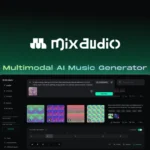New York-based startup ElevenLabs, renowned for its cutting-edge voice synthesis and cloning models, has officially entered the music industry with the launch of Eleven Music—an AI-powered platform capable of generating full songs from simple text prompts.
Users can specify parameters like genre, instruments, or duration, and within seconds, receive a downloadable track. This marks a significant expansion of ElevenLabs’ synthetic voice technology into a booming market with high demand for original soundtracks in advertising, video games, and social media.
Strategic Licensing with Merlin and Kobalt
To proactively address the contentious issue of copyright in AI-generated audio, ElevenLabs has secured licensing agreements with Merlin Network and Kobalt Music Group—two of the world’s most influential independent music catalogs.
Merlin represents works by artists such as Adele, Nirvana, and Phoebe Bridgers, while Kobalt handles compositions from Beck, Bon Iver, and Childish Gambino. Importantly, tracks from these catalogs will only be used in training the AI with explicit opt-in consent from the artists. This approach not only safeguards intellectual property but also opens new revenue streams for musicians.
The company plans to roll out a Pro version of the platform, which will allow access to AI trained on licensed content. Meanwhile, the free version will generate music exclusively from royalty-free data.
Entering a Controversial Landscape
The release of Eleven Music arrives at a turbulent time for AI and the music industry. In 2024, the RIAA filed lawsuits against startups like Suno and Udio, accusing them of unauthorized use of copyrighted music to train their models.
In contrast, ElevenLabs has positioned itself as a more responsible player, choosing the licensing route to distinguish its offering. It markets Eleven Music as the first commercially safe AI audio generator—available for legal use from day one.
Still, challenges remain. Traditional record labels are demanding transparency about training data and mechanisms to prevent unauthorized replication of recognizable songs. At the same time, independent creators see this technology as a way to both monetize underused back catalogs and experiment with new forms of human-AI collaboration.
Capabilities and Limitations
The current version of Eleven Music can generate songs up to two minutes long and includes synthetic vocals in styles like rap, pop, and rock. While it avoids imitating specific artists, the company is implementing safeguards to prevent unauthorized voice cloning of famous singers.
However, the output quality varies depending on the complexity of the prompt and the desired musical coherence. For professional-grade projects, ElevenLabs recommends external mixing and mastering for optimal results.
A Message to the Market
With Eleven Music, ElevenLabs is not just adding a new product—it’s signaling a shift in how generative AI can coexist with the rights of creators while delivering real value to advertisers, studios, and content producers.
As the intersection between music and machine intelligence continues to evolve, Eleven Music stands as a bold example of how innovation and ethical licensing can go hand in hand.




